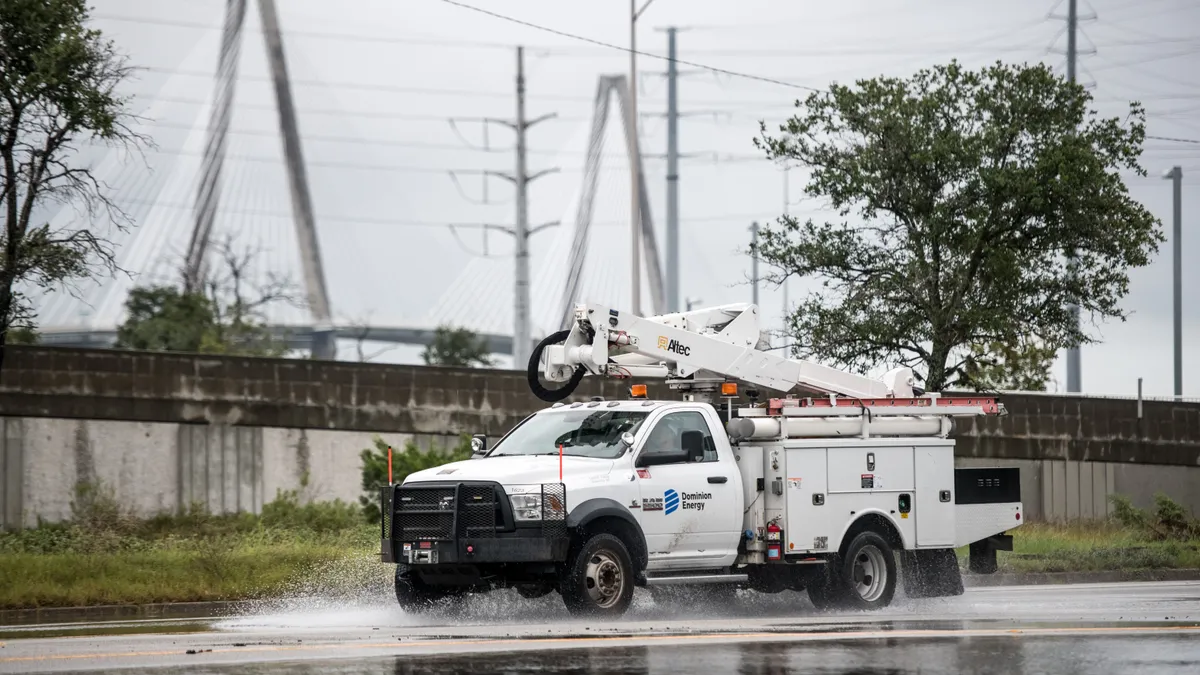Dive Brief:
- South Carolina's electric utilities are "adequately prepared to prevent and respond to outages caused by ice storms and winter weather events," according to a Jan. 4 report by the state's Office of Regulatory Staff.
- The assessment found the largest utilities, including Duke Energy and Dominion Energy, are doing a good job on asset inspections, risk management and system hardening. Smaller utilities, however, show "lagging maturity" in some areas.
- The report recommends South Carolina form a task force to consider "voluntary adoption" of weatherization practices similar to new requirements developed in Texas spurred by February outages during Winter Storm Uri. Utilities should also evaluate bulk power system reliability "under more extreme conditions" and strengthen their procedures for cold weather preparedness, planning and coordination.
Dive Insight:
The assessment of South Carolina's grid is generally positive, concluding the largest utilities "have methods and procedures that ensure clear communications governance and protocols in place during major events."
Those utilities include Duke Energy Progress, Duke Energy Carolinas and Dominion Energy South Carolina, which combined own about 61,000 miles of distribution line in the state.
The assessment was ordered by Gov. Henry McMaster, R, following last winter's blackouts in Texas and the Southwest. Bolstering grid resiliency is "ever-evolving work in progress and we must remain vigilant," he said in a statement on the report's release.
“This is an important and encouraging step towards fully understanding the stability and resiliency of the state’s power grid,” McMaster said.
"We are still digesting the final report but generally support its findings," Duke spokesperson Ryan Mosier said in an email. "We believe our system is adequately weatherized and we have a significant diversity of generation sources to meet higher winter demand."
Duke will also "gladly participate in task forces, collaboratives and other opportunities for dialogue" suggested by the report, Mosier said.
The report recommended the state form a task force to "evaluate the voluntary adoption of practices comparable to those recently adopted in Texas."
New rules passed in October by the Public Utility Commission of Texas required generators and transmission providers to weatherize their plants and systems ahead of the upcoming winter. Following the upgrades, recent inspections by the state's grid operator concluded the system is ready for winter.
"We welcome the sharing of best practices that will help the state become collectively more prepared to respond to the demands of customers 24/7, especially during extreme weather," Dominion spokesperson Rhonda O’Banion said in an email.
The report scored large utilities as "leading" on indicators of risk management and winter preparedness. However, smaller utilities were found lagging in asset management and inspections, system design and hardening, situational awareness and other areas.
The report found smaller utilities show a "lagging level of maturity in investing their resources to achieve cost-effective resilience and reliability solutions, minimizing the negative impacts of climate change and extreme weather to their customers."
The report based its assessment of smaller providers on information from six electric utilities, including the Electric Cooperatives of South Carolina (ECSC) which submitted information on behalf of its 18 members. The group, however, did not agree with all of the report's findings.
There are 72,000 miles of power lines operated by electric cooperatives in South Carolina, according to a summary of the report.
"We believe that we have made significant investments in smart grid technologies based on the needs of our systems," ECSC spokesperson Lou Green said. "This general assessment of this subsection of utilities doesn't reflect electric cooperatives."















